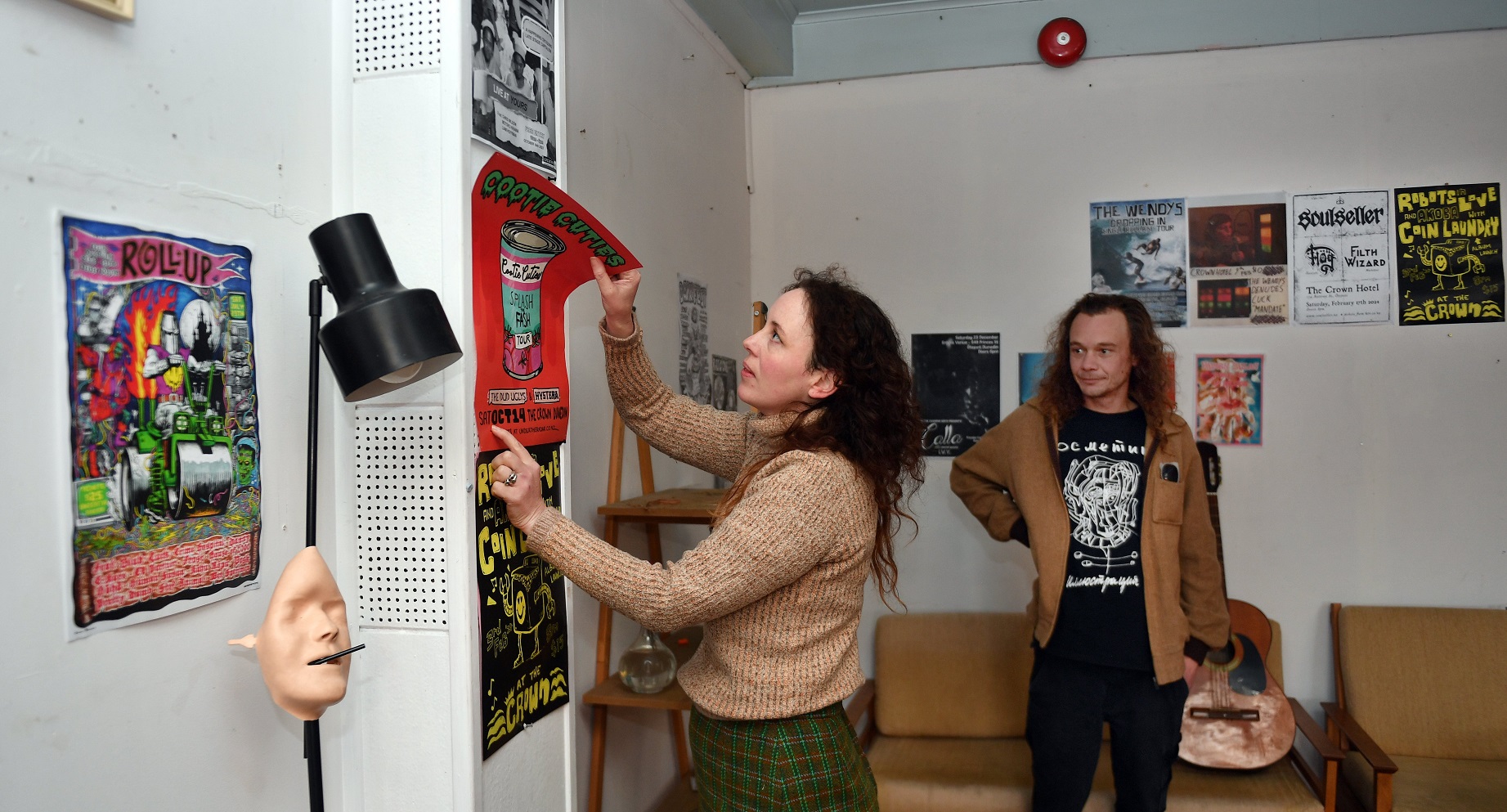Rentable practice room and rehearsal complex Spaceland, in Jutland St which is located in Dunedin’s industrial area, was hit with an eviction notice last month following a noise complaint from the neighbours.
Co-owners Jenny Duncan and Andrew Frost have operated the premises, which is a not-for-profit and registered charity, for the past three years.
Spaceland was used as a rehearsal space for music tuition, band practices and as a recording studio — offering a space for about 40 bands over its lifetime.
Ms Duncan said the eviction was unexpected and had come as a shock.
After an initial letter from their landlord, Spaceland had ceased all noise-making activity while they sought legal advice.
They had sent a letter to their neighbours proposing a compromise on the noise, which was then distributed to the landlord and used as evidence to warrant an eviction — as a continued breach of contract.
Noise complaints and people’s intolerance of noise were a big problem for Dunedin’s music scene. While there were complexities involved, she believed noise complainants were unwilling to talk with musicians one-on-one.
"You never really know what kind of effect your complaint is actually going to have.
"People’s noise complaints have shut down whole venues or jazz festivals ... things that have taken months or years to actually plan."
Audio engineer and session musician Sam Healey said he would hire a room at Spaceland to use as a recording studio for work about five days a week.
About half of his income was made through the studio, and his "whole financial life" had been tied to Spaceland.

Noise complaints were a problem, but were not being addressed as effectively as in other parts of the world.
"It’s so systematically ingrained that people complain about noise and cultural venues close — it’s guaranteed at this point."
Save Dunedin Live Music spokesman David Bennett said venues such as Spaceland were "the bedrock" for the formation of Dunedin’s music scene, which provided access and community for aspiring musicians.
"When you lose venues like Spaceland, the impacts are not just the building or the people directly rehearsing, but a kind of shockwave impact through the music scene that will go for years.
"The projects that would have had a home in that place that could have become something will now be left to fend for themselves."
The closure was a stark reminder that unless something was regulated, it was never actually safe.
Ideas that noise could be produced up until 11pm without consequence and that industrial zones were a safe space for noise-making activity were not true.
"[Spaceland] were operating in an area that they believed they were safe, they were doing it under what was actually advice given on the council website until it had been removed a few years ago, and they thought they were doing everything right."
There was a commitment written into the Otepoti Live Music Action Plan to support existing rehearsal studios, which was made just before Spaceland’s issues began.
He had since approached the council about rehousing Spaceland, and talks had been "very receptive" so far.
"But like all these things, you’re kind of trying to solve problems after the fact."











